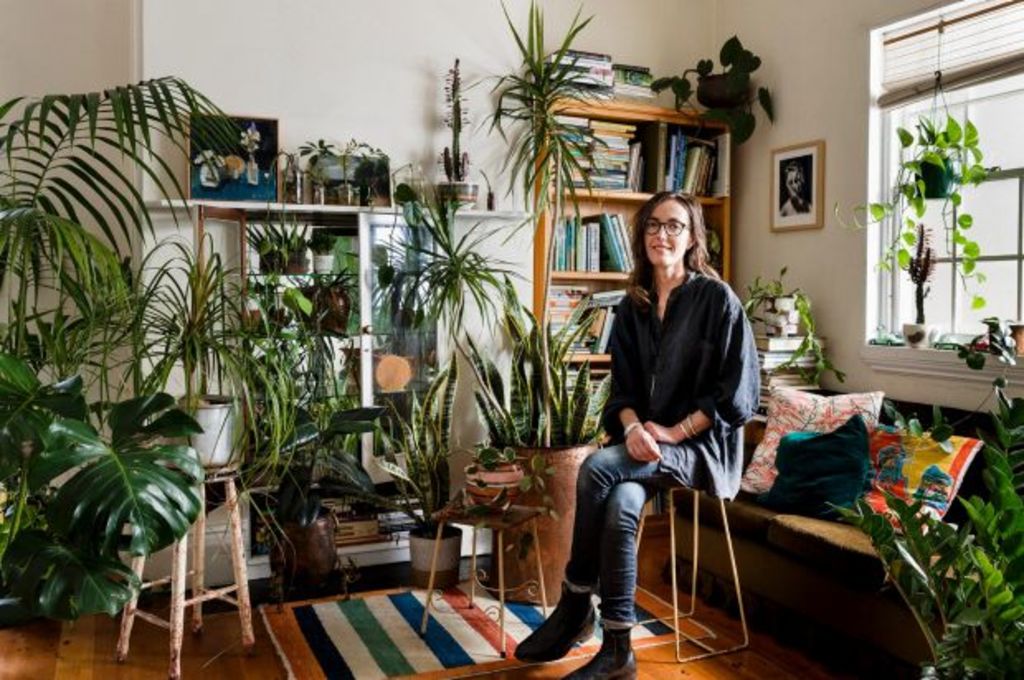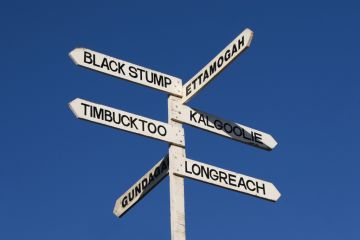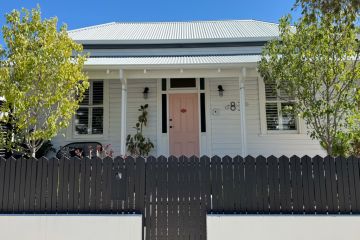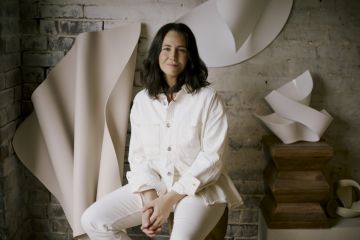High-profile gardeners reveal what they wish they’d known before planting a garden

If you could go back in time, with the knowledge you have now, what would you do differently in your garden?
We asked three high-profile gardeners what they wish they’d known when they first found their green thumbs.
Indira Naidoo, media personality and author of The Edible Balcony

Indira Naidoo believes gardening is more “innate” than we realise. Photo: Alan Benson.
“I wish I’d known that gardening wouldn’t be as daunting as I’d always imagined it to be.
I had so many questions: would I have the time? Would it grow? Where would I find the right soil? But I now wish that I’d started gardening 20 years earlier.
I want first-time gardeners to know that it’s not so overwhelming. You don’t know as little as you think you know; it’s much more natural and innate to us all than we realise.
And then, once you get going, there are only five or six fundamental rules that you need to be across. These include understanding the sunlight [and] the type of soil and nutrients that your plants need. Once you have those basic pointers, then you have a much higher chance of being successful – although it’s still a bit hit and miss.
I also had no idea how happy gardening would make me.
- Related: Indira Naidoo’s tips for gardening success
- Related: Advice on creating a vertical garden
- Related: An outdoor oasis without the neighbours
I started gardening to grow my own food. It was a very specific reason, but as I started – and now I’ve been doing it regularly for 10 years – the greatest joy has become being surrounded by greenery and nature. The insects, bees and birds are enjoying my garden just as much as I am, and that’s what I love most about my garden.
I had no idea that having an intimate green space would give me so much joy. That was really unexpected.
Gardening means there’s always a new delight to discover, and it’s a joyous thing to learn about.”
The Planthunter‘s Georgina Reid

The Planthunter’s Georgina Reid is proud as punch to call herself a gardener. Photo: Daniel Shipp.
“I wish I’d known what an important job being a gardener is.
I have gardened all my life; I can’t remember a time when I wasn’t playing in the dirt. As a child I had a plot in Mum’s vegetable garden and decided vegetables were too hard to grow so my brother and I planted a special weed garden! Mum wasn’t impressed.
A deep love of plants and gardening has always flowed through my life, but it took me a long time to realise that I could make a career out of it. And even longer to realise what a valuable job it is to garden, to tend the earth.
I dilly-dallied around for years, wondering what to do with my life, never once thinking that gardening was a good career choice. Anyone can garden, it doesn’t require any special skills, and it’s something retired people do … or so I thought. I was so wrong.
Gardening – like few other pursuits – encourages a deep reverence and respect for the natural world. It teaches patience, perspective and hope, and encourages behaviours that are constructive in relation to nature, rather than destructive.
Now, more than ever before, we all need to become gardeners. Everyone! The more people revering plants and cultivating gardens, creating and protecting pockets of green throughout our cities and towns, the better chance we have of sustaining life on earth.
If I’d known how valuable gardening is, I would have allowed myself more time to play and develop my skills in the garden, rather than chasing other less satisfying jobs. I wouldn’t have been embarrassed in my early 20s to call myself a gardener. Not any more; now I’m proud as punch!”
Mat Pember from The Little Veggie Patch Co

Mat Pember (left) says gardeners must understand their “limitations”. Photo: John Laurie for Grow Food Anywhere.
“I wish I’d known that understanding my personal limitations could have helped me set up a garden that’s suited to my lifestyle.
Gardening is … all about being in a good routine. My personality goes against that and you have to understand what your limitations are.
My parents are retired and they have this incredible routine of being out in the garden every morning with their coffee and tea and they’re watering and doing all the little things you have to do on a consistent basis. But for me, it’s harder to find that time and get into a routine.
In hindsight, I’d have set up better infrastructure to help my garden through my lack of time to nurture it, like a self-watering garden. This probably would have been better than just jumping in.
As a gardener, you tend to jump in and then retrospectively add in an irrigation system, or realise the soil isn’t quite right so then you’re trying to fix that. But it’s all about getting the timing right. For example, knowing the right time to plant is really important, rather than just putting things in when you have some time in your weekend.
I’m a bit like a gardening therapist, asking people about their lifestyle and how a garden can fit into that. What are your time constraints? Do you like to entertain in your garden? Do you have kids who play sports on the weekend? Those limitations can help you know how to set up your garden, and know where it could potentially fall over.
I’m not very good at taking that advice on myself though!”
We recommend
We thought you might like
States
Capital Cities
Capital Cities - Rentals
Popular Areas
Allhomes
More







